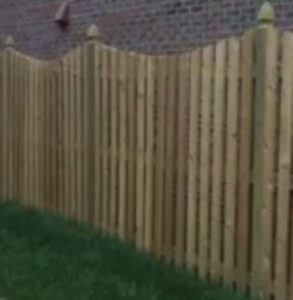
Wood is quite tasty to termites. Fortunately, there are ways you can protect your beautiful wood fence from termite infestation and degradation.
A wood fence offers many benefits, such as being cost-effective, rustic with a classic appeal, and a popular option for privacy fencing. With proper care and treatments, you should also know that wood fencing can last for a while. All in all, a wood fence can give you the protection and aesthetic appeal that you want for your property.
However, there is a downside to wood fencing. Termites can be a problem regarding wood fencing. Wood is quite tasty to termites. Fortunately, there are ways you can protect your beautiful wood fence from termite infestation and degradation.
Call 877-959-3534 for a Fence Quote!
Invest in Treatment for Your Wood Fence
You can prevent termites from chomping down on your fence by ensuring that you have your fence treated regularly. If you’d prefer to paint your fence, we suggest using an oil-based primer. Pesticides work or apply an oil-based stain or termite-resistant paint.
Another thing to consider is that we provide custom wood fences with durable, pressure-treated ACQ lumber. Treated lumber aids in moisture, fungal, insect, and fire resistance.
Remove Rotten, Neighboring Wood
If you see any old, rotten stumps close to your wood fence, it’s best to remove them. It’s also a good idea to eliminate any nearby wood that might attract termites. We also recommend that your firewood stack be at least a few feet from your fencing.
Move Heavy Shrubs
Big bushes and heavy shrubs are appealing to termites. Therefore, moving bushes and shrubs close to your fence is helpful. Flowers are safe to plant alongside your fence. However, you should know that excessive watering can set the scene for a termite infestation. The best idea might be to separate your landscaping from your fence.
Eliminate Moisture
Damp areas and standing water create an ideal space for pests. We suggest checking your property for sources of moisture and removing them to keep your wooden fence safe against an infestation.
Check Your Fence Consistently
Even with the best efforts, termites can still find their way to a wooden fence. Therefore, we advise that you inspect your fence consistently. Look for the following:
- Holes
- Damaged areas
- Cracked paint
- Hollow-sounding wood
- Termite droppings (which look like sawdust or sand)
Spotting the problem sooner rather than later can stop the damage from worsening.
Call 877-959-3534 for a Fence Quote!
The post Protecting Your Wood Fence From Termites appeared first on Hercules Fence.